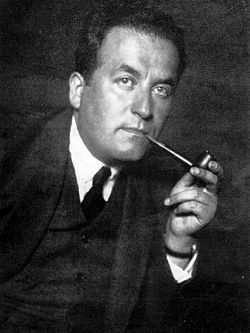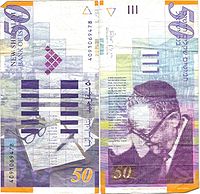Israel’s First Nobel Prize Winner: Shmuel Yosef Agnon Posted by Ayana on Dec 8, 2016 in Uncategorized

Shmuel Yosef Agnon
Fifty years ago Israel won its first Nobel Prize. It was the literature prize and it was given to Shmuel Yosef Agnon (1887-1970). In December 1966, Agnon and his wife travelled from Jerusalem to Sweden, to receive international recognition of his life devotion: writing.
His first works were published while he was still a teenager. At the age of 15 his first poem was publicly printed. Agnon wrote several genres including poetry, notes and short stories in Hebrew and Yiddish. At 20, Agnon left his hometown Buchach (a small town in what is now Ukraine, but then Polish Galicia within the Austro-Hungarian Empire). He arrived to Jaffa, lived in rented small room, made friends with a group of publicists, and wrote his first story to be published in Israel: Agunot. Agnon, who was born as Shmuel Yosef Czaczkes, adopted his surname and pseudonym from this story, the one that made him famous. He signed the piece as Agnon, and did so with every piece he wrote since then. [For advanced reading in Hebrew about Agunot click here].
In 1912, Agnon moved to Berlin, Germany, where he met two important people: his wife and his literary patron. Ester and Agnon got married in 1920, set their house in Bad Homburg, and had two children. Salman Schocken, a successful businessman, first supported Agnon financially and later established a publishing house to publish his works. [Check out Schocken Books` website].
One night in 1924, a fire broke out in the house of Agnon. His family escaped unscathed, but his manuscripts were destroyed. The traumatic event motivated him to return to Israel. The Agnon family set their house in Jerusalem. After years of travelling and wandering between countries, cities and apartments, Agnon finally settled in Jerusalem. The new house, completed in 1931, offered Agnon comfortable working conditions. He and his family lived on the ground floor, and in the library upstairs he closed himself for hours, day after day, devoting himself to writing. This is the home where Agnon wrote the works that made him internationally renowned, like the novels A Simple Story, A Guest for the Night and Only Yesterday. This is where, in October 1966, Agnon was officially informed that he had won the Nobel Prize.
In 1970, after nearly 40 years of stability in his home in Jerusalem, Agnon died, leaving behind novels, novellas and short stories that enriched the Jewish culture. Agnon, a son of an ordained rabbi who worked as a merchant, a religious Jew who read and studied secular texts, merged in his stories holy scriptural themes with the struggles of daily life. His works deal with the conflict between the traditional Jewish life and the developing modern civil life. Agnon, a central figure of modern Hebrew fiction, won ‟for his profoundly characteristic narrative art with motifs from the life of the Jewish people”.
After his death his house was opened to the public and became a place where people would gather to study his work. If you are visiting Israel, you are welcome to visit his house on Klausner Street 16, Jerusalem. And maybe you will even notice him on the banknote of 50 Shekels [For advanced reading in Hebrew about this check out this article].

S.Y. Agnon on the 50 NIS banknote (during the years 1985-2014)
Text vocabulary
Literature = סִפְרוּת (Sif-rut)
Writing = כְּתִיבָה (Ke-ti-va)
Nobel prize = פְּרַס נוֹבֶּל (Pe-ras no-bel)
Novel = רוֹמָן (Ro-man)
To publish = לְפַרְסֵם (Le-far-sem)
Manuscript = כְּתַב יָד (Ke-tav yad)
Genre = סוּגָה (Su-ga)
Renowned = יָדוּעַ (Ya-du-ha)
Keep Calm and Read Agnon

Build vocabulary, practice pronunciation, and more with Transparent Language Online. Available anytime, anywhere, on any device.



